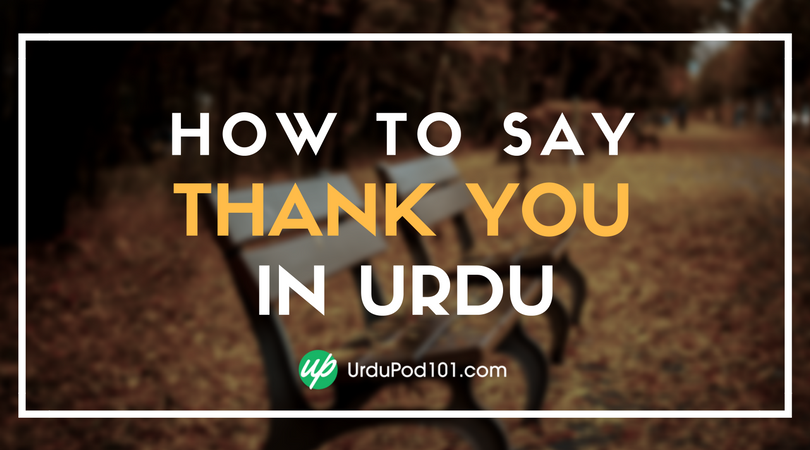
Using nouns in your conversations can prove to be quite handy when it comes to communicating with native Urdu speakers. At times, a single noun in the right context can go a long way toward making your point clear. Therefore, by learning 100 important Urdu nouns, you’ll increase your chances of effective communication with native Urdu speakers.
Before we go on to our Urdu nouns list, however, there’s some basic grammar information you should know.
 Table of Contents
Table of Contents- The Usage and Significance of the Noun as a Part of Speech in Urdu
- Food & Restaurants
- Talking about Time
- Transportation
- School Essentials
- Jobs & Occupations
- Family Members
- Body Parts
- Miscellaneous Nouns in Urdu
- Conclusion
1. The Usage and Significance of the Noun as a Part of Speech in Urdu

In Urdu grammar, nouns may be the most important part of speech. They represent the name of a person, place, thing, idea, etc. “Noun” is translated as اسم (Ism) in Urdu. Becoming familiar with the structural positioning of nouns in Urdu, along with our list of nouns in Urdu, will determine your success as you learn Urdu nouns.
1- The Place of Nouns in Urdu Sentences
Noun placement in Urdu sentences differs from that in English. It’s a syntactic difference that you should always take into account before proceeding further in learning about nouns in Urdu. In Urdu syntax, the object noun comes before the verb; however, the subject precedes it. Thus, the order will be: Subject -> Object Noun -> Verb.
2- The Simplest Division of Nouns in the Urdu Language
You’ll find two major categories of the noun in Urdu. Ism-e-Aam, or the “common noun,” is the first one, and Ism-e-Khaas, or the “proper noun,” is the other. These two categories function similarly to how they do in English. The name of a particular thing, place, person, etc., is termed to be Ism-e-Khaas (proper noun in Urdu) and the generic name commonly used for a thing, place, person, etc., is defined as Ism-e-Aam (proper noun in Urdu).
3- How to Differentiate Between Masculine and Feminine Nouns in Urdu
Urdu nouns’ gender are divided into two opposite entities: masculine and feminine. To understand the division of nouns in Urdu grammar rules is an uphill task for a beginner. However, the simplest formula to discern between these two genders of the noun in Urdu is to identify them based on their ending sounds. A noun that ends in –aa is generally masculine. For example:
- لڑکا
‘larka’
Boy
On the other hand, a noun that ends with –ii sound is feminine:
- لڑکی
‘larki’
Girl
Besides this simple division, a few exceptions in these gender rules also exist. A mastery over Urdu noun grammatical gender can only be achieved through consistent hard work and patience.
4- Important Day-to-Day Categories of Urdu Nouns
As a non-native Urdu speaker, you’ll probably be interested in getting an Urdu nouns list that will maximally benefit you while visiting an Urdu-speaking country. UrduPod101.com is replete with many lessons in multiple categories pertaining to Urdu learning.
Below are a few Urdu nouns for you. After a great deal of hard work, these Urdu nouns have been selected from a few different walks of life. If you’re able to master these nouns initially, you’ll be able to establish your comfort zone in communicating with Urdu speakers.
Let’s start learning these nouns and their proper usage in Urdu sentences right away.
2. Food & Restaurants
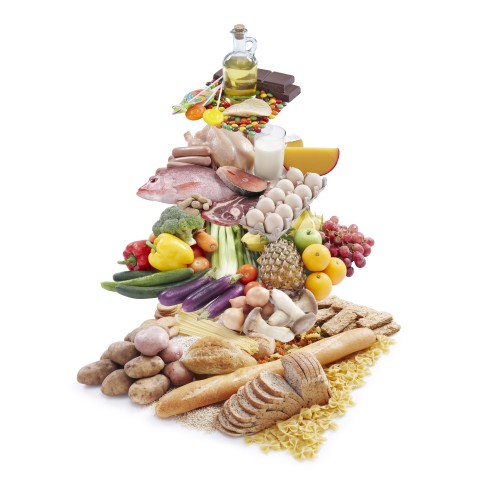
When you visit an Urdu-speaking country, it’s almost mandatory to learn Urdu nouns that can help you order food. No one can survive without food, so to avoid any inconvenience in Pakistan, you must learn the names of at least a few popular foods.
سبزی (‘Sabzi’) – Vegetable
میں سبزی کھانا چاہتا ہوں۔
‘Mei sabzi khana chahta hun.’
I want to eat a vegetable.
گوشت (‘gosht’) – Meat
کیا یہاں پر گوشت ملتا ہے؟
‘Kia yahan per gosht milta hai?’
Is meat available here?
دال (‘daal’) – Lentil
مجھے دال پسند ہے۔
‘Mujhay daal pasand hai.’
I like the lentil.
پھل (‘phal’) – Fruit
پھل صحت مند غذا ہے۔
‘Phal sehat mand ghiza hai.’
The fruit is a healthy food.
مرغی (‘murghi’) – Chicken
کیا آپ مرغی کھاتے ہیں؟
‘Kia ap murghi khatay hain?’
Do you eat chicken?
ڈبل روٹی (‘double roti’) – Bread
ایک ڈبل روٹی لے آؤ۔
‘Aik double roti lay aao.’
Bring one piece of bread.
روٹی (‘roti’) – Loaf
میں مرغی کے ساتھ روٹی کھاؤں گا۔
‘Mei murghi ky sath roti khaon ga.’
I will eat a loaf with chicken.

ناشتہ (‘nashta’) – Breakfast
آپ ناشتے میں کیا پسند کریں گے؟
‘Ap nashtay mein kia pasand karein gay?’
What would you like for breakfast?
دوپہر کا کھانا (‘dopehar ka khana’) – Lunch
میں دوپہر کا کھانا ایک بجے کھاؤں گا۔
‘Mei dopehar ka khana aik bajay khaon ga.’
I will have my lunch at one o’clock p.m.
شام کا کھانا (‘sham ka khana’) – Dinner
ہم شام کا کھانا اکٹھے کھائیں گے۔
‘Hum sham ka khana ikathay khain gay.’
We will have dinner together.
Below are the names of some common fruits and vegetables in Urdu-speaking countries. You will also find their appropriate use in the Urdu sentences.
کیلا (‘kayla’) – Banana
وہ کیلا شوق سے کھاتا ہے۔
‘woh keyla shoq se khaata hai.’
He eats banana eagerly.
سیب (‘saib’) – Apple
مجھے سیب پسند ہے۔
‘mujhay saib pasand hai.’
I like apple.
آم (‘aam’) – Mango
پاکسان آم کے لئے مشہور ہے۔
‘Pakistan aam ke liye mash-hoor hai.’
Pakistan is famous for its mangoes.
امرود (‘amrood’) – Guava
میں نےکچھ امرود خریدے۔
‘Mei nay kuch amrrod khareeday.’
I bought some guavas.
انار (‘anaar’) – Pomegranate
ڈاکٹر نے اسے انار کا جوس پینے کی نصیحت کی۔
‘Doctor nay usay anaar ka juice peenay ki naseehat ki.’
Doctor advised him to drink the pomegranate juice.
شملہ مرچ (‘shimla mirch’) – Capsicum
شملہ مرچ چینی کھانوں میں بہت زیادہ استعمال ہوتی ہے۔
‘Shimla mirch cheeni khano mei bohat zyada istemaal hoti hai.’
Capsicum is widely used in the Chinese cuisine.
کدو (‘kadu’) – Pumpkin
کدو ایک زود ہضم غذا ہے۔
‘Kadu ek zood hazam ghiza hai.’
Pumpkin is an easily digestible food.
آلو (‘aaloo’) – Potato
آلو کھانے سے موٹاپا ہوتا ہے۔
‘Aaloo khanay say motapa hota hai.’
Eating potatoes causes obesity.
ٹماٹر (‘tamatar’) – Tomato
ٹماٹڑ کھانے کو ایک مزیدار ذائقہ بخشتا ہے۔
‘Tamatar khanay ko ek mazedar zayeqa bakhasta hai.’
Tomato gives a tasteful flavour to the food.
پیاز (‘payaaz’) – Onion
کیا آپ گھر میں پیاز استعمال کرتے ہیں؟
‘Kya aap ghar mei payaaz istemaal kartay hain?’
Do you use onion at your home? To enhance your learning, please visit the Food, Utensils, and Tableware and Restaurants vocabulary lists at UrduPod101.com.
3. Talking about Time

Everything in this modern era revolves around the clock. You should be able to ask or tell the time in Urdu efficiently. In the near future, UrduPod101.com is going to bring a full article on this topic for Urdu learners; however, for the time being, below are a few Urdu nouns that you can start using right away.
صبح (‘subha’) – Morning
وہ صبح سیر کو جاتا ہے۔
‘Woh subha sair ko jata hai.’
He goes for a walk in the morning.
دوپہر (‘dopehar’) – Noon
میں تمہیں دوپہر کو ملوں گا۔
‘Mei tumhein dopehar ko milun ga.’
I will meet you at noon.
سہ پہر (‘seh pehar’) – Afternoon
وہ سہ پہر میں فٹبال کھیلتے ہیں۔
‘Woh seh pehar meim football khailtay hain.’
They play football in the afternoon.
شام (‘sham’) – Evening
میچ شام کو شروع ہو گا۔
‘Match sham ko shuru ho ga.’
The match will start in the evening.
رات (‘raat’) – Night
ہم رات کو مووی دیکھیں گے۔
‘Hum raat ko movie dakhein gay.’
We will watch a movie at night.
آج (‘aaj’) – Today
میں آج کالج جاؤں گا۔
‘Mei aaj college jaon ga.’
I will go to college today.
کل (‘kal’) – Tomorrow
کل منگل ہے۔
‘Kal mangal hai.’
Tomorrow is Tuesday.
پرسوں (‘parso’) – Day after tomorrow
پرسوں چھٹی ہے۔
‘Parso chuti hai.’
The day after tomorrow is a holiday.
دن (‘din’) – Day
وہ دن میں کام کرتا ہے۔
‘Woh din mei kam karta hai.’
He works during the day.
مہینہ (‘mahina’) – Month
اس کام میں دو مہینے لگ سکتے ہیں۔
‘Iss kam mein dou mahinay lag saktay hain.’
This job may take two months.
In addition to these time-specific Urdu nouns, it’s quite helpful if you know the days of the week in Urdu. Following are the names of each day of the week in Urdu, along with a few more significant time-specifying nouns.
سوموار (‘somwar’) – Monday
منگل (‘mangal’) – Tuesday
بدھ (‘budh’) – Wednesday
جمعرات (‘jumayraat’) – Thursday
جمعہ (‘juma’) – Friday
ہفتہ (‘hafta’) – Saturday
اتوار (‘itwar’) – Sunday
ایک ہفتہ (‘aik hafta’) – A week
وہ ایک ہفتے سے سکول آ رہی ہے۔
‘Woh ek haftay say school aa rahi hai.’
She has been coming to school for a week.
سال (‘saal’) – Year
وہ اس سال کالج جائے گا۔
‘Woh is saal college jaye ga.’
He will go to college this year.
گھنٹہ (‘ghanta’) – Hour
ایک گھنٹے میں ساٹھ سیکنڈز ہوتے ہیں۔
‘Ek ghantay mei saath seconds hotay hain.’
There are sixty seconds in one hour.
In addition to this list of nouns in Urdu, browsing the fifty most common nouns in Urdu at UrduPod101.com will enable you to learn more basic nouns in Urdu for telling and asking for the time.
4. Transportation
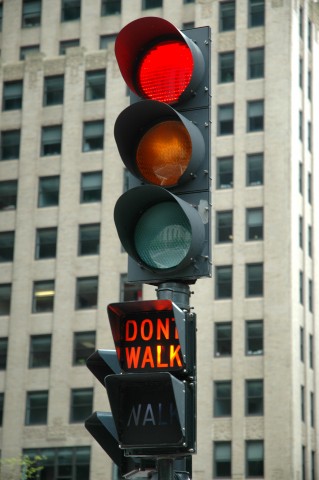
As a foreigner, one can’t escape from the need to travel and get around. While everyone’s purpose for visiting may vary, every needs to have a way to get from one place to another. Thus, it’s essential to learn about nouns in Urdu that will help you travel efficiently.
ٹریفک (‘traffic’) – Traffic
اس شہر میں ٹریفک بے قابو ہے۔
‘Iss shehar mein traffic beqabu hai.’
The traffic in this city is uncontrollable.
بائیک (‘bike’) – Bike
کیا آپ بائیک چلا سکتے ہیں؟
‘Kia ap bike chala saktay hain?’
Can you ride a bike?
ہوائی جہاز (‘hawai jahaz’) – Airplane
کیا آپ پاکستان ہوائی جہاز پر آئے ہیں؟
‘Kia ap Pakistan hawai jahaz par aye hain?’
Have you traveled on an airplane to Pakistan?
سڑک (‘sarak’) – Road
یہ سڑک اسلام آباد کو جاتی ہے۔
‘Yeh sarak Islamabad ko jati hai.’
This road leads to Lahore.
ہوائی اڈہ (‘Hawai adda’) – Airport
اس شہر کا ہوائی اڈہ کدھر ہے؟
‘Iss shehar ka hawai adda kidhar hai?’
Where is the airport of this city situated?
لاری اڈہ (‘lari adda’) – Bus station
میں لاری اڈے پر کھڑا ہوں۔
‘Mei lari adday per kharra hun.’
I am at the bus station.
چوک (‘chowk’) – Intersection
مجھے کلمہ چوک جانا ہے۔
‘Mujhay kalma chowk jana hai.’
I have to go to Kalma Intersection.

پیدل (‘paidal’) – On foot
میں وہاں پیدل پہنچوں گا۔
‘Mei wahan paidal pohanchu ga.’
I will reach there on foot.
ٹیکسی (‘taxi’) – Taxi
میں ہوٹل ٹیکسی پر جاؤں گا۔
‘Mei hotel taxi per jaon ga.’
I will go to the hotel by taxi.
ریل گاڑی (‘rail gari’) – Train
یہاں پر ریل گاڑی کا سفر محفوظ ترین ہے۔
‘Yahan per rail gari ka safar mahfooz tareen hai.’
The train journey is the safest here.
5. School Essentials

Education is an important social institution, and a topic of great interest to many visitors to Pakistan. If, as a foreign visitor, you want to take your relationship with the natives to the next level, then learning a few Urdu nouns about education is definitely a great idea. Let us learn some important school-related nouns in Urdu to strengthen your Urdu communication.
یونیورسٹی (‘university’) – University
آپ کون سی یونیورسٹی میں پڑھتے ہو؟
‘Ap kon si university mein parhtay ho?’
In which university do you study?
طالب علم (‘talib-e-ilm’) – Student
وہ ایک اچھا طالب علم ہے۔
‘Woh aik acha talib-e-ilm hai.’
He is a good student.
استاد (‘ustaad’) – Teacher
میں ایک استاد ہوں۔
‘Mei aik ustaad hun.’
I am a teacher.
کتاب (‘kitaab’) – Book
آپ کون سی کتاب پڑھ رہے ہو؟
‘Aap kaun si kitaab parh rahay ho?’
Which book are you studying?
نصاب (‘nisaab’) – Curriculum
اس سکول کا نصاب اچھا ہے۔
‘Iss school ka nisaab acha hai.’
The curriculum of this school is good.
جماعت (‘jamaat’) – Class
وہ آٹھویں جماعت میں پڑھتا ہے۔
‘Woh athween jamaat mei parrhta hai.’
He studies in eighth grade.
مضمون (‘mazmoon’) – Subject
آپ کو کون سا مضمون پسند ہے؟
‘Aap ko kaun sa mazmoon pasand hai?’
Which subject do you like?
کمرہ جماعت (‘kamra-e-jamaat’) – Classroom
یہ بی ایس کا کمرہ جماعت ہے۔
‘Yeh bs ka kamra-e-jamaat hai.’
This is the classroom of Bachelor of Science.
نظام تعلیم (‘nizam-e-taleem’) – Education system
آپ کے ملک کا نظام تعلیم اچھا ہے۔
‘Ap kay mulk ka nizam-e-taleem acha hai.’
The education system of your country is good.
ڈگری (‘degree’) – Degree
آپ کے پاس کونسی ڈگری ہے؟
‘Ap kay pas kaun si degree hai?’
Which degree do you have?
If you’re a keen learner and want to know more Urdu nouns related to education, our back-to-school essentials vocabulary list is a good page to explore.
6. Jobs & Occupations

Regardless of why you’re visiting Pakistan, you’re likely to be asked about your job or profession. Therefore, being familiar with some job-related Urdu nouns will give you an added advantage of being more at ease with Urdu speakers. Following is our list of Urdu nouns for some important occupations.
وکیل (‘wakeel’) – Lawyer
وہ ایک وکیل ہے۔
‘Woh aik wakeel hai.’
He is a lawyer.
کاروبار (‘karobar’) – Business
وہ اپنا کاروبار کرتا ہے۔
‘Woh apna karobar karta hai.’
He runs his own business.
تاجر (‘tajir’) – Merchant
وہ کپڑے کا تاجر ہے۔
‘Woh kapray ka tajir hai.’
He is a cloth merchant.
ڈاکٹر (‘doctor’) – Doctor
اس کا بیٹا ایک ڈاکٹر ہے۔
‘Uss ka beta aik doctor hai.’
His son is a doctor.
درزی (‘darzi’) – Tailor
مجھے ایک درزی کے پاس جانا ہے۔
‘Mujay aik darzi kay pas jana hai.’
I need to visit a tailor.
انجینئر (‘engineer’) – Engineer
وہ ایک مکینیکل انجینئر ہے۔
‘Woh aik mechanical engineer hai.’
He is a mechanical engineer.
صنعت کار (‘sanat kar’) – Industrialist
میرا بھائی ایک صنعت کا ر ہے۔
‘Mera bhai aik sanat kar hai.’
My brother is an industrialist.
سیاست دان (‘sayasat daan’) – Politician
وہ ایک نرم دل سیاست دان ہے۔
‘Woh aik naram dil sayasat daan hai.’
He is a kind-hearted politician.
صحافی (‘sahafi’) – Journalist
میں ایک کامیاب صحافی ببنا چاہتا ہوں۔
‘Mei ek kamyab sahafi ban na chahta hun.’
I want to become a successful journalist.
فوجی (‘foji’) – Soldier
یہ ایک بہادر فوجی ہے۔
‘Yeh aik bahadur foji hai.
This is a brave soldier.
In the near future, UrduPod101.com will bring you an interesting article about jobs in Urdu-speaking countries, including how to find and attain one. Keep your eyes open for this one!
7. Family Members
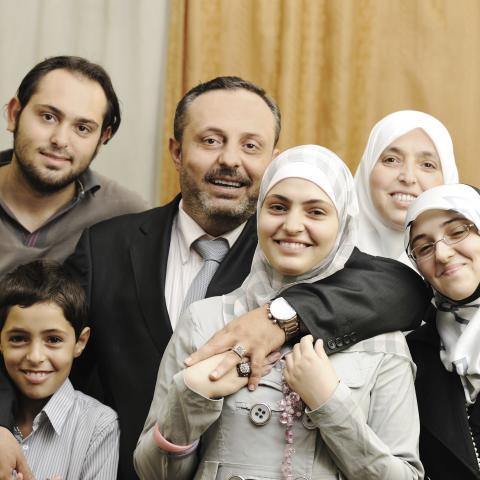
Family is another significant social institution. It’s impossible to survive without it in human society. Therefore, when you’re away from home and in another land, people will be curious to know about your family. Following are a few Urdu nouns that will enable you to talk about your family in Urdu.
باپ (‘baap) – Father
آپ کے باپ کا کیا نام ہے؟
‘Ap kay baap ka kia nam hai?’
What is your father’s name?
ماں (‘maa’) – Mother
اس کی ماں ایک ہاؤس وائف ہے۔
‘Uss ki maa aik house wife hai.’
His mother is a housewife.
بیٹا (‘beta’) – Son
آپ کا بیٹا کہاں ہے؟
‘Ap ka beta kahan hai?’
Where is your son?
بیٹی (‘beti’) – Daughter
کیا آپ کی بیٹی ایک استاد ہے؟
‘Kia ap ki beti aik ustaad hai?’
Is your daughter a teacher?
بھائی (‘bhai’) – Brother
وہ میرا بڑا بھائی ہے۔
‘Woh mera bara bhai hai.’
He is my elder brother.
بہن (‘behan’) – Sister
کیا آپ کی بہن ڈاکٹر ہے؟
‘Kia ap ki behan doctor hai?’
Is your sister a doctor?
خاوند (‘khawind’) – Husband
آپ کے خاوند کیا کرتے ہیں؟
‘Ap kay khawind kia kartay hain?’
What does your husband do?
بیوی (‘biwi’) – Wife
میری بیوی ہاؤس وائف ہے۔
‘Meri biwi housewife hai.’
My wife is a housewife.
چچا/ماموں (‘chacha/mamu’) – Uncle
وہ میرا چچا/ماموں ہے۔
‘Woh mera chacha/mamu hai.’
He is my uncle.
چچی/ممانی (‘chachi/mumani’) – Aunt
کیا وہ آپ کی چچی/ممانی ہے؟
‘Kia woh ap ki chachi/mumani hai?’
Is she your aunt?
UrduPod101.com will soon provide you with a blog post on family in Urdu that will introduce you to even more Urdu nouns about familial relations.
8. Body Parts
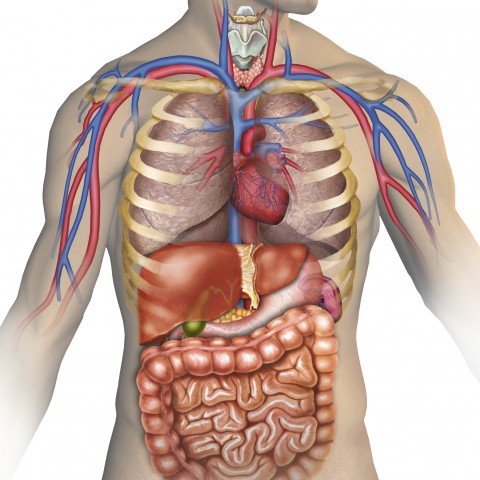
Knowing the names of different parts of the body is essential anywhere, and Pakistan is no exception. If you know these Urdu nouns, you can refer to them in case of a medical or other emergency. To equip you with this knowledge, we have the following Urdu nouns list.
سر (‘sar’) – Head
میرے سر میں درد پے۔
‘Meray sar mein dard hai.’
I have a headache.
آنکھ (‘aankh’) – Eye
آپ کی آنکھیں کالی ہیں۔
‘Ap ki ankhein kali hain.’
Your eyes are black.
منہ (‘munh’) – Mouth
آپ کے منہ میں کیا ہے؟
‘Ap kay munh mein kia hai?’
What do you have in your mouth?
دانت (‘dant’) – Tooth
اس کے دانت خوبصورت ہیں۔
‘Uss kay daant khubsurat hain.’
His teeth are beautiful.
گردن (‘gardan’) – Neck
آپ کی گردن لمبی ہے۔
‘Ap ki gardan lambi hai.’
Your neck is long.
گلا (‘gala’) – Throat
کیا آپ کے گلے میں انفیکشن ہے؟
‘Kia aap kay galay mein infection hai?’
Do you have a throat infection?
بازو (‘bazoo’) – Arm
اس کا بازو زخمی ہے۔
‘Uss ka bazoo zakhmi hai.’
His arm is wounded.
چھاتی (‘chaati’) – Chest
اس کی چھاتی میں درد ہے۔
‘Uss ki chaati mei dard hai.’
He has chest pain.
دل (‘dil’) – Heart
وہ ایک صحت مند دل کا مالک ہے۔
‘Woh aik sehat mand dil ka malik hai.’
He has a healthy heart.
ٹانگ (‘taang’) – Leg
اس کی ٹانگ ٹوٹ گئی ہے۔
‘Uss ki taang toot gai hai.’
He has a broken leg.
9. Miscellaneous Nouns in Urdu

Here are ten miscellaneous Urdu nouns that you can use in your conversations with Urdu speakers.
پانی (‘pani’) – Water
مجھے پانی کا گلاس چاہئے۔
‘Muhay pani ka glass chahiye.’
I need a glass of water.
چائے (‘chai’) – Tea
کیا آپ چائے لیں گے؟
‘Kia ap chai lain gay?’
Will you take tea?
آدمی (‘aadmi’) – Man
یہ آدمی کون ہے؟
‘Yeh aadmi kon hai?’
Who is this man?
عورت (‘aurat’) – Woman
یہ عورت کہاں رہتی ہے؟
‘Yeh aurat kahan rehti hai?’
Where does this woman live?
موسم (‘mausam’) – Weather
آج موسم اچھا ہے۔
‘Aaj mausam acha hai.’
It is pleasant weather today.
ہوٹل (‘hotel’) – Hotel
آپ کس ہوٹل میں ٹھرے ہوئے ہیں؟
‘Aap kis hotel mein thehray huay hain?’
In which hotel are you staying?
انٹرنیٹ (‘internet’) – Internet
میں انٹرنیٹ استعمال کرنا چاہتا ہوں۔
‘Mei internet istemal karna chahta hun.’
I want to use the internet.
پنکھا (‘pankha’) – Fan
مہربانی کر کے پنکھا چلا دیں۔
‘Meharbani kar kay pankha chala dain.’
Please, turn the fan on.
گھر (‘ghar’) – House
آپ کا گھر کہان ہے؟
‘Ap ka ghar kahan hai?’
Where is your house?
کمرہ (‘kamra’) – Room
یہ ایک کُشادہ کمرہ ہے۔
‘Yeh ek kushaada kamra hai.’
This is a spacious room.

10. Conclusion
Never give up learning and keep trying hard. If you want to explore a few more avenues for learning Urdu nouns, then hit our Urdu core one-hundred word list for more nouns in Urdu. Also, to know the meaning of every word in Urdu, use our Urdu dictionary at UrduPod101.com.
So far, you’ve learned about the role and use of nouns in Urdu vocabulary. If you want to know all about nouns in Urdu, then stay tuned; we’ll soon give you a complete guide to nouns in Urdu.
We look forward to your valuable feedback. So, let us know if this article introduced you to new words. Are there any Urdu nouns you still want to know? We value your responses!
Very Happy Urdu Learning!



